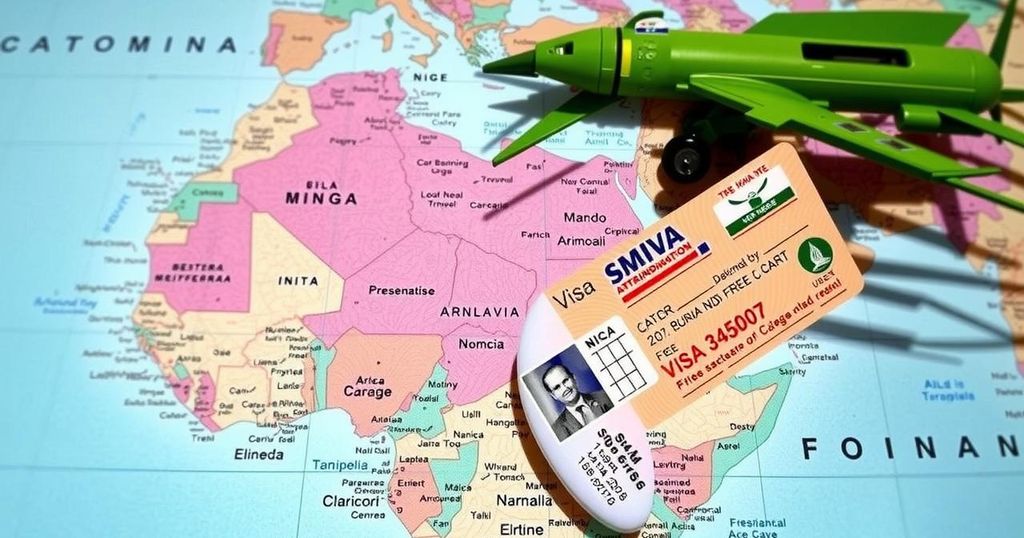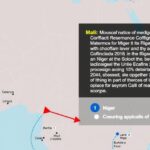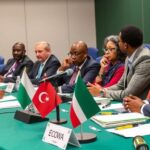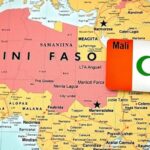Burkina Faso, Mali, and Niger Introduce Visa-Free Travel Amid ECOWAS Exit
Burkina Faso, Mali, and Niger have implemented visa-free travel for ECOWAS citizens in a bid to strengthen regional ties amidst their planned exit from the bloc due to military coups and sanctions. The potential impact includes a loss of population and territory for ECOWAS. The evolving geopolitical landscape poses challenges to regional unity and future collaborations between the blocs.
Burkina Faso, Mali, and Niger have launched a visa-free travel policy for citizens of the Economic Community of West African States (ECOWAS) as part of their efforts to strengthen historical ties among African nations. Despite their low-income and landlocked status, the three nations aim to encourage regional integration. However, there are concerns that most migrants might still opt for the more prosperous coastal nations within West Africa.
The newly instituted visa policy comes after these countries announced intentions to exit ECOWAS due to perceived sanctions that they described as “inhumane and irresponsible” following military coups and a failure to address their internal security challenges. Relations between ECOWAS and these countries deteriorated following recent military takeovers, with the organisation advocating for a return to democratic governance, a stance that has been resisted by the military-led governments.
The official withdrawal process from ECOWAS is set to culminate in January 2025, following a one-year notice period. Following military coups in the region—including in Niger, Burkina Faso, and Mali—ECOWAS suspended their memberships, hoping for a transition back to civilian rule. The leaders of these nations are pivoting towards Russia for support against regional threats, amidst calls from ECOWAS for them to reconsider their departure from the bloc.
During recent discussions in Nigeria, ECOWAS leaders acknowledged the Sahel nations’ decision to leave and offered a transitional period during which the three could potentially rejoin the bloc. Senegal’s President, Bassirou Diomaye Faye, and Togo’s President, Faure Gnassingbé, are mediating to facilitate this possibility. The ECOWAS Commission head, Omar Touray, indicated that the transitional phase could allow for eventual reinstatement of these nations into ECOWAS, framing the visa-free travel decision as a”gesture of friendship” to foster stronger bonds amongst African peoples.
The exit of Burkina Faso, Mali, and Niger represents a considerable setback for ECOWAS, which was founded in 1975 to promote economic and political integration in West Africa. With these countries departing, ECOWAS will lose approximately 76 million people from its total population of 446 million, as well as more than half of its geographical territory. While Assimi Goïta, the AES chairman and Mali’s military ruler, stated that citizens of the new alliance would maintain rights regarding travel and residency, the geopolitical ramifications remain substantial.
The implications of Burkina Faso, Mali, and Niger’s new visa-free policy reflect their intent to reinforce historical and cultural connections among African nations. However, these developments are set against a backdrop of strained relations with ECOWAS following military coups that led to sanctions due to the member states’ governance changes. The evolving geopolitical landscape complicates existing collaborations and raises questions about future interactions between the newly formed Alliance of Sahel States (AES) and ECOWAS.
In conclusion, the recent decision by Burkina Faso, Mali, and Niger to implement visa-free travel for ECOWAS citizens is emblematic of their dedication to fostering regional solidarity, albeit in the context of an impending withdrawal from the bloc. The geopolitical tensions brought about by military governance and a pivot towards external powers like Russia present significant challenges for regional unity and cooperation in addressing security concerns. This transition period could redefine the relationship dynamics between the Sahel states and ECOWAS moving forward.
Original Source: businessday.ng








Post Comment